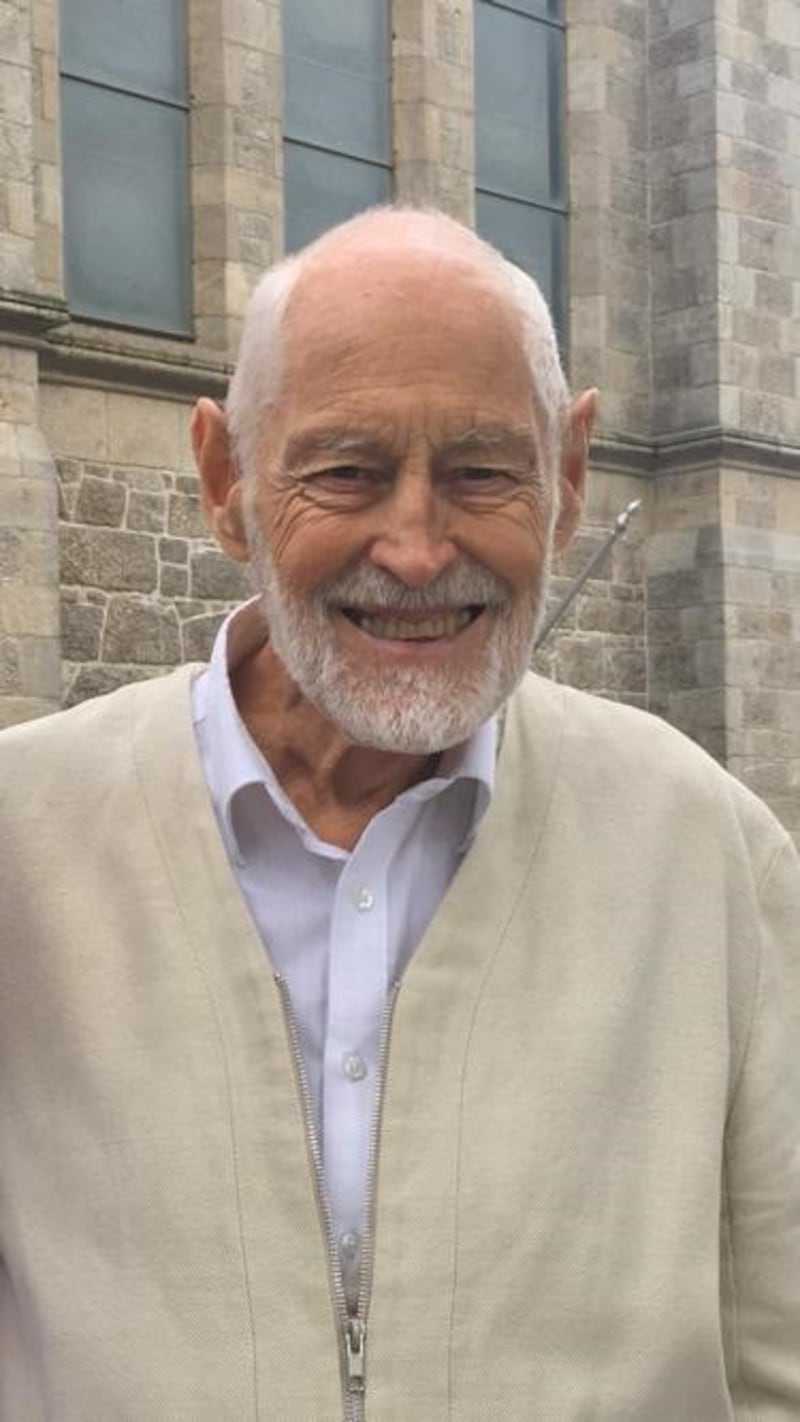“We are living in a society that is driving people mad.”
That is only one of many pithy remarks he made during his 94 years. I suppose most of us have said something similar at some stage in our lives, but it was a bit different coming from Ireland’s best-known psychiatrist.
I had to stretch my neck to talk to him, because he was at least six foot, four inches tall. After he died last week, the southern media was coming down with articles and opinion pieces about his life and work. Strangely, I didn’t see or hear any mention of him up here in the north.
One of the articles said that Ireland had shared their deepest secrets with Ivor Browne and that he was one of Ireland’s greatest liberators. The reference was to his work in bringing mental health out from behind high, dreary walls and into the mainstream of Irish life.
I remember him giving me a tour of St Brendan’s Hospital, Grangegorman. An old asylum in Dublin, row after row of (some locked) wards surrounded by a 20-foot wall. Browne was probably the most influential in having the wall removed and the wards unlocked.

He later claimed that, even up to the present day, the treatment of mental illness had not improved all that much. Instead of being constrained by walls, he said, patients were now being constrained by drugs. (He was not completely against the use of drugs for certain conditions.)
If you try to relate in a loving way you find that people respond. When you give as much love as you can, you get it back a hundred-fold
— Ivor Browne
There is a lovely letter in one of the papers of a patient who had not spoken for several days on entering hospital. Ivor sat on the man’s bed, pulled out his beloved tin whistle and played until the man began to smile and then speak. Which put me in mind of an occasion he and I were asked to leave a pub when he started to play the same tin whistle. The owner was not too keen on us trad people who, he claimed, attracted a rough crowd.
There has been a multitude of heartwarming testimonies coming from his former patients. Celebrities too were out in big numbers acclaiming his giftedness. Actors, poets and journalists recounted stories of his help in getting them through depression or trauma or addiction.
Statement by President Higgins on the death of Dr Ivor Browne https://t.co/oSM8EUodhu
— President of Ireland (@PresidentIRL) January 24, 2024
Thankfully, Ivor had the wit to know that psychiatry or psychiatrists don’t heal people. He often said that people heal themselves and that means that they themselves must take on the pain and suffering.
He was involved in deprived communities in Dublin in helping them help themselves and it was he who got the seed money to establish a community organisation in the Bogside in Derry in the early years of the Troubles. That organisation eventually morphed into the Inner City Trust which, among other things, has acquired and beautifully restored some of Derry’s most important architectural buildings.
It is disappointing that, in this country, and especially in the north, psychiatry has mostly retreated into clinical practice. I am sure there are many people thankful for the treatment they have received but there appears to be little or no public input from that profession.

There is no dispute any more about the extent and depth of mental illness. There is also evidence that there is an unhealthy overuse of drugs. From the ‘wee roach’ to heavy medication, prescribed drugs may rival their illegal counterparts in making people overdependent.
There is an important voice missing from an important debate. Ivor Browne did his bit in showing that the voice can be used both in private and in public. Some of his later insights were very pessimistic about the future, predicting that nature would bite back at the destructive way that mankind has mistreated it. But he never fully lost his optimism and his warmth.
“If you try to relate in a loving way,” he said, “you find that people respond. When you give as much love as you can, you get it back a hundred-fold.”










